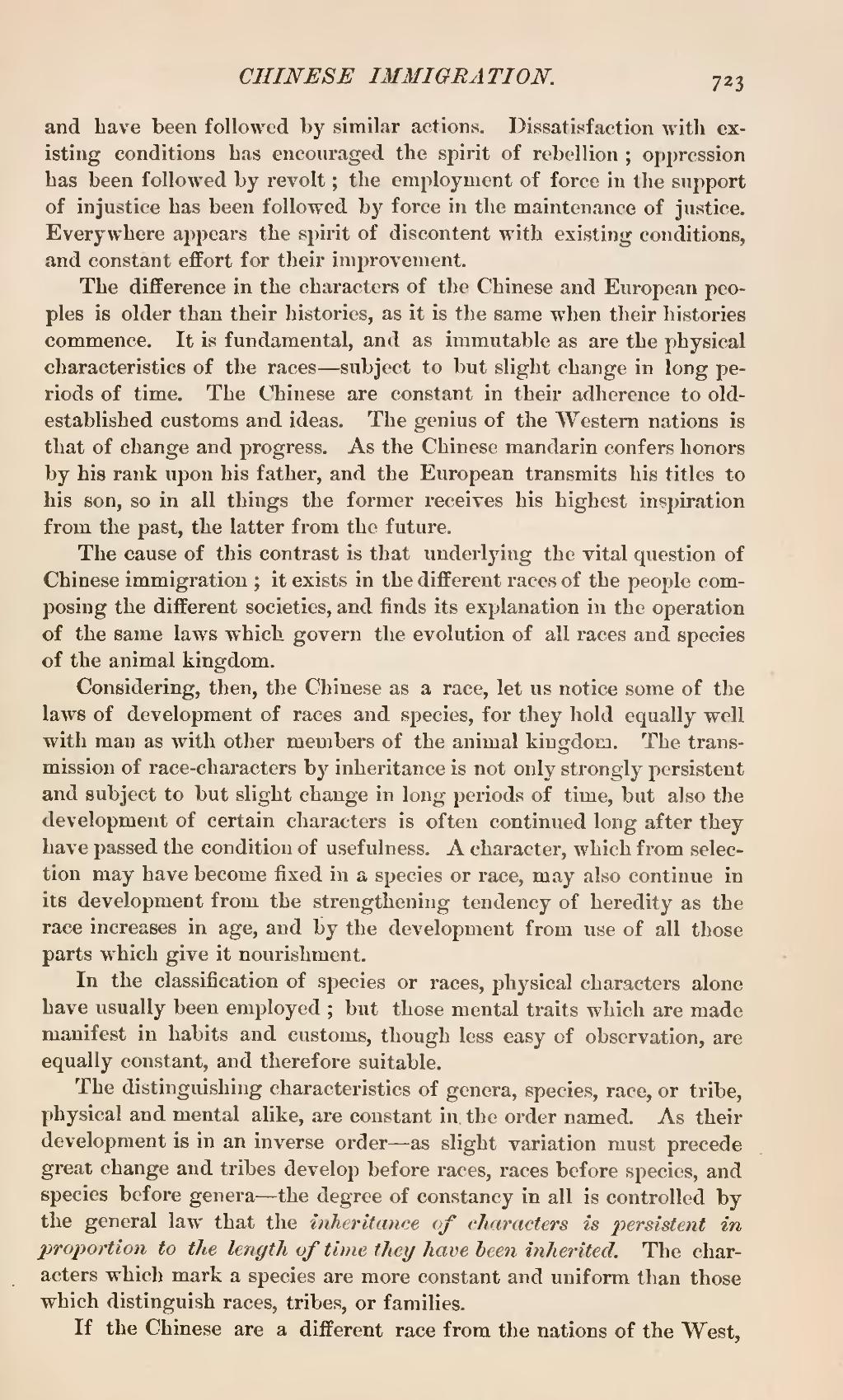and have been followed by similar actions. Dissatisfaction with existing conditions has encouraged the spirit of rebellion; oppression has been followed by revolt; the employment of force in the support of injustice has been followed by force in the maintenance of justice. Everywhere appears the spirit of discontent with existing conditions, and constant effort for their improvement.
The difference in the characters of the Chinese and European peoples is older than their histories, as it is the same when their histories commence. It is fundamental, and as immutable as are the physical characteristics of the races—subject to but slight change in long periods of time. The Chinese are constant in their adherence to old established customs and ideas. The genius of the Western nations is that of change and progress. As the Chinese mandarin confers honors by his rank upon his father, and the European transmits his titles to his son, so in all things the former receives his highest inspiration from the past, the latter from the future.
The cause of this contrast is that underlying the vital question of Chinese immigration; it exists in the different races of the people composing the different societies, and finds its explanation in the operation of the same laws which govern the evolution of all races and species of the animal kingdom.
Considering, then, the Chinese as a race, let us notice some of the laws of development of races and species, for they hold equally well with man as with other members of the animal kingdom. The transmission of race-characters by inheritance is not only strongly persistent and subject to but slight change in long periods of time, but also the development of certain characters is often continued long after they have passed the condition of usefulness. A character, which from selection may have become fixed in a species or race, may also continue in its development from the strengthening tendency of heredity as the race increases in age, and by the development from use of all those parts which give it nourishment.
In the classification of species or races, physical characters alone have usually been employed; but those mental traits which are made manifest in habits and customs, though less easy of observation, are equally constant, and therefore suitable.
The distinguishing characteristics of genera, species, race, or tribe, physical and mental alike, are constant in. the order named. As their development is in an inverse order—as slight variation must precede great change and tribes develop before races, races before species, and species before genera—the degree of constancy in all is controlled by the general law that the inheritance of characters is persistent in proportion to the length of time they have been inherited. The characters which mark a species are more constant and uniform than those which distinguish races, tribes, or families.
If the Chinese are a different race from the nations of the West,

